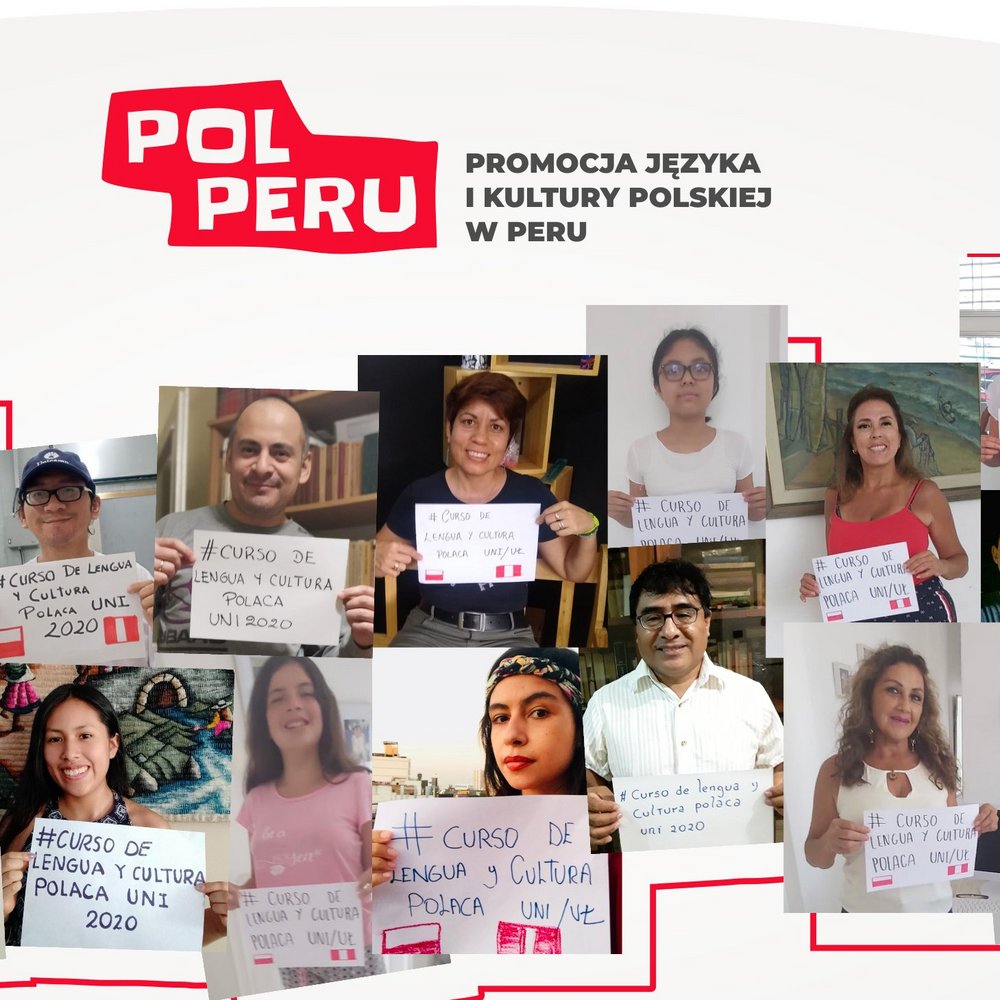Goals of the project
The goal of the “Polish language and culture course in Peru (Pol-Peru)” was to promote Polish culture and language in Peru. The task was implemented by conducting a several-month, intensive language and culture course at the Universidad Nacional de Ingeniería (UNI) – the oldest technical university on the continent. The university was established in 1876 by a Polish engineer Jan Edward Habich, who as a Rector managed it for 33 years. J. E. Habich is also recognized on a continent scale as the father of modern education in the field of exact and technical sciences, the first scientific associations and periodicals – a concept today called internationalisation of science. Today UNI is still one of the best and largest scientific institutions in the country. As many as the last ten presidents and several hundred ministers are UNI graduates.
The project implementation was possible thanks to a grant obtained from the Polish National Agency for Academic Exchange (NAWA) under “Promotion of the Polish language” programme and the support of the Polish Embassy in Lima.
Author of the project, dr Jędrzej Kotarski (a doctoral student at the Faculty of Philosophy and History of the University of Lodz) emphasizes that “currently in Peru the interest in learning Polish and studying in Poland is high; due to the consistent increase in the knowledge about Poland and Poles among Peruvians in recent years being a result of initiatives of the Polish Ambassador in Lima and the activities carried out last year under the NAWA project. The number of interested individuals and the activity of participants exceeded our expectations and confirmed that submitting such an educational offer was the right choice and the implementation turned out to be an undisputed success”.
The course formula
The course consisted of two parts: Polish language and Polish culture parts (conducted in parallel). The first part was about learning the basics of language, pronunciation, grammar and vocabulary. The second part focused on the Polish history and culture as well as selected socio-political issues. The topics discussed were, among others: the role of Poland in creating the contemporary European order and its contribution to the world heritage; Polish national uprisings in the nineteenth and twentieth centuries; multiculturalism of Poland in the interwar period; the history of Jewish minority in Poland and the Holocaust; characteristics of the Polish People's Republic; birth of Solidarity and political transformation after 1989, as well as discussing foundations of our identity and tradition as well as selected specific topics devoted to, inter alia, Polish holidays, national symbols or Polish cuisine.
Due to the COVID-19 coronavirus pandemic and a very restrictive state of emergency throughout Peru, which has been in force continuously since 16 March 2020, the stationary mode of classes had to be replaced by a remote (online) mode. The course was conducted using the MS Teams platform (made available by the University of Lodz) by a specialist from the Polish Language Centre, UL – Justyna Wesołowska.
Target group
The project was addressed to several target groups. The first group were students and doctoral students at UNI and representatives of other Peruvian universities that cooperate with Polish universities or individuals who would like to study and work in Poland. The second group consisted of descendants of Polish migrants and members of scientific and political associations founded years ago by Polish migrants (e.g., the Peruvian Engineers Association, Geographical Society of Lima, Peru) as well as parliamentarians from the Peruvian-Polish League.
Activities carried out as part of the grant were in compliance with the priorities and development strategy of the University of Lodz and Universidad Nacional de Ingeniería.
Source: dr Jędrzej Kotarski, Faculty of Philosophy and History, UL
Edit: Promotion Centre, UL

